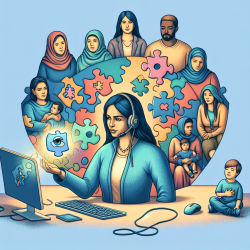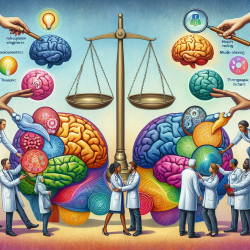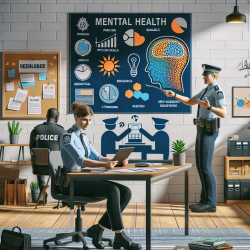Key Recommendations to Implement
Diversity, Equity, and Inclusion (DEI) Initiatives
The article underscores the importance of recognizing neurodiversity as a DEI issue. This involves:- Ensuring DEI personnel are trained to address neurodiversity-related issues.
- Collecting data on the representation and challenges faced by neurodivergent students, staff, and faculty.
- Implementing strategies to increase inclusion and representation of neurodivergent individuals.
Campus-Wide Neurodiversity Training
Training for faculty, staff, and students can significantly reduce stigma and foster a more inclusive campus environment. The research highlights the effectiveness of online and scalable training curricula in increasing knowledge and reducing stigma towards autism.Disability Cultural Centers
Establishing Disability Cultural Centers can promote positive disability identities and provide a supportive community for neurodivergent students. These centers can serve as hubs for institutional initiatives promoting neurodiversity and disability inclusion.Integrated Disability Accommodations
A centralized approach to disability accommodations can greatly enhance accessibility. Providing each disabled campus community member with a single primary contact to coordinate their accommodations can reduce the advocacy and executive function demands on neurodivergent individuals.Flexible Disability Documentation Requirements
The article recommends making disability documentation requirements less onerous. Accepting individualized education plans (IEPs) and not requiring recent documentation for permanent disabilities can remove significant barriers to accessing accommodations.Sensory Accommodations
Recognizing and accommodating sensory discomfort, distraction, distress, and overload is crucial. This includes offering housing accommodations like single rooms and quiet dormitory buildings, as well as considering sensory accessibility in new construction and renovations.Transition Support Programs
Supporting neurodivergent students during transitions into and out of postsecondary education is vital. Programs like summer transition programs, staff check-ins, and mentorship can help neurodivergent students acclimate to campus life and navigate the transition to employment or graduate school.Improved Mental Health Supports
Given the elevated rates of mental health challenges among neurodivergent students, offering sustained mental health support and hiring counselors with expertise in supporting neurodivergent individuals is essential.Flexible Communication Modalities
Offering a variety of communication modalities, such as telephone, email, and videoconference appointments, can ensure accessible communication for neurodivergent students. Additionally, providing students with multiple means of class engagement and evaluation can accommodate their diverse needs.Encouraging Further Research
While these recommendations provide a solid foundation for creating more inclusive postsecondary campuses, further research is needed to explore additional domains and contexts. Practitioners are encouraged to delve deeper into the literature and consider the unique needs of neurodivergent individuals in their specific settings.To read the original research paper, please follow this link: Building Neurodiversity-Inclusive Postsecondary Campuses: Recommendations for Leaders in Higher Education.










